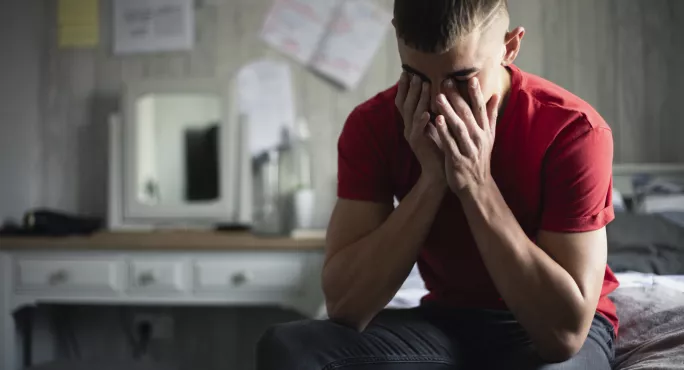- Home
- Most vulnerable teens ‘did no home learning’
Most vulnerable teens ‘did no home learning’

Almost 70 per cent of the most disadvantaged pupils in Scotland have not used any learning materials provided by their school since lockdown started, a survey suggests.
Around half of the more than 1,000 young people surveyed (49.1 per cent) said the materials were hard to understand; 42.5 per cent said they were too stressed and anxious to engage with the work; and around one in four (26.7 per cent) said they had caring duties that impacted on their ability to take part in home learning.
Background: ‘Schools not ready for pupils’ emotional needs’
Opinion: ‘Now is the time to be bold on educational inequality’
About MCR Pathways: Research shows it’s worth skipping class for mentoring
Coronavirus: What’s life really like for pupils in lockdown?
Headteachers’ views: Online learning not reaching all pupils
The survey also reveals that there were practical issues associated with learning from home: 14.5 per cent of respondents did not have IT and internet access and nearly two in 10 (19.5 per cent) did not have the space at home.
Coronavirus: The impact on disadvantaged pupils
The charity that carried out the research - mentoring charity MCR Pathways - is now calling for care-experienced and disadvantaged pupils to be prioritised and provided with full-time schooling in the event of further lockdowns.
It also wants disadvantaged young people to have additional one-on-one time with teachers when schools return and for all schools to dedicate several periods each week to a “recovery curriculum” covering mental health, relationships and healthy sleep, exercise and eating.
In a report published today, it adds: “Teaching and discussion of these issues need to be given equal priority to academic subjects in the first few months.”
The MCR Pathways survey ran for six weeks over June and July and involved 1,347 young people aged 13 to 18. Over half (56.1 per cent) were either currently or previously in the care system, with the remainder on the edges of the care system.
One young person said: “Since I’m used to having people around to explain it face-to-face, it’s been a bit harder getting help with schoolwork, especially since it’s quite often that I struggle putting what I need help with into words and I struggle learning from words alone if I don’t understand the text.”
When asked about returning to school, young people were most concerned about getting back into the school routine (80.5 per cent); finding it hard to get back to normal (76.7 per cent) and being behind with school work (76.2 per cent). Six out of ten (60.2 per cent) were concerned about Covid-19 infection, while five out of 10 (50.3 per cent) were worried about not having seen friends for a long period of time.
Almost half (46.7 per cent) were concerned about re-establishing relationships with teachers.
To make it easier to go back to school, 82.2 per cent of young people stated that meeting with their MCR Pathways mentor regularly again would help; a large proportion (75.3 per cent) also wanted one-to-one time with their teacher.
Young people said they wanted to be back in school full-time. However, if there is a requirement to use blended learning and attend school part-time, 54.3 per cent said they wanted to attend every day, or three or four days a week. The least popular option (10.8 per cent) was attending school for just one or two days. To be able to work at home, 58.1 per cent of young people asked for more time with teachers when in school and 27.7 per cent said they wanted more time online with teachers.
One “surprise to the adult view”, according to the charity, was that 42.1 per cent wanted printed copies of resources - prompting the charity to also call for paper-based options for home learning to be “readily available at all times” and either posted to pupils or available to collect from schools on a weekly basis in the event of further lockdowns.
MCR Pathways founder Iain MacRitchie warned that disadvantaged young people had to be listened to “to avoid losing a generation and further fuelling the attainment crisis”.
“Young people told us they need to be in school full time and it’s clear that the most vulnerable and disadvantaged need one-on-one teacher time and supportive relationships as a central part of all recovery plans. It is heartbreaking to hear young people saying they have lost all social interaction abilities, that they now feel sad most of the time and can’t get out of bed as they have nothing to look forward to and no one to help or encourage them.
“Schools are not just for education - they are safe havens, community hubs and where hope and aspiration is nurtured. If there is a second lockdown we must find a way and alternative buildings, if necessary, to continue full-time education for those that need it most.”
Register with Tes and you can read two free articles every month plus you'll have access to our range of award-winning newsletters.
Keep reading with our special offer!
You’ve reached your limit of free articles this month.
- Unlimited access to all Tes magazine content
- Save your favourite articles and gift them to your colleagues
- Exclusive subscriber-only stories
- Over 200,000 archived articles
- Unlimited access to all Tes magazine content
- Save your favourite articles and gift them to your colleagues
- Exclusive subscriber-only stories
- Over 200,000 archived articles



